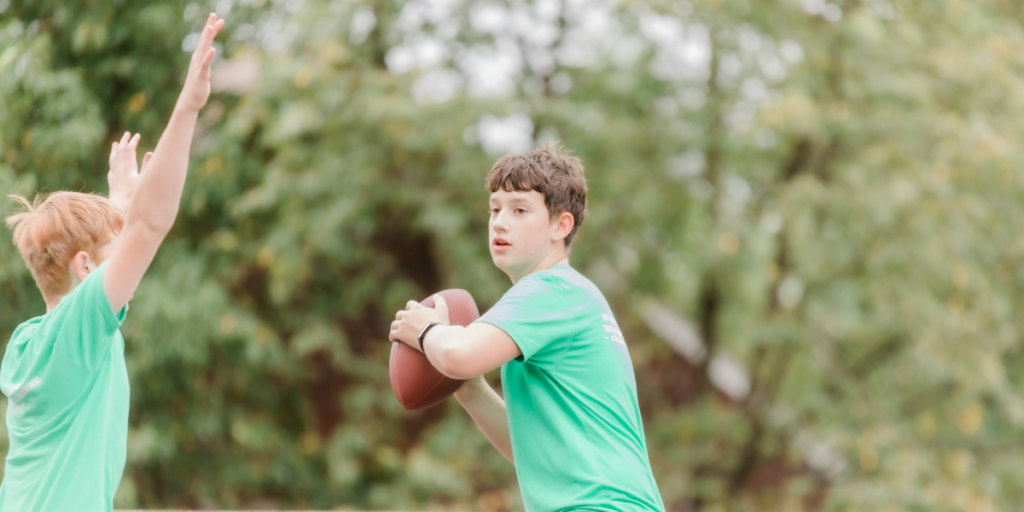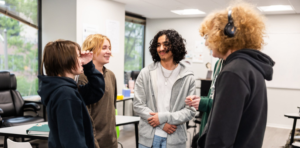Tips to Avoid Summer Brain Drain

I recently was asked to give a talk for the FAA on School’s Out: Tips on How to Avoid Summer Brain Drain. Parents wanted to know how they should be engaging their students over the summer, especially in light of COVID and the hopeful relaxing of social guidelines. Parents often worry about regression and wonder if there are ways to prevent it. Many parents also have pragmatic concerns: I have to work full time over the summer, what are my kids supposed to do? Dr. David Myles, who is a pediatrician at Walter Reed and also spoke at the event, used a term I’d like to borrow. He explained that it’s best to view the summer as a bridge between the beginning and end of school.
First of all, as parents, please be kind to yourselves. This has been quite a year and we’ve all had to embrace flexibility, good enough parenting, and plan B (or C, D, E). At times, we’ve probably felt boredom, frustration, stress, sadness, and even anger. Try to focus on the good in the year and what you HAVE been able to accomplish. If nothing else, you have survived a pandemic! Think about you and your families’ resilience. Give yourself credit for what you have managed to do in the face of such an unusual year. Also, please recognize that you and your children are probably very tired of COVID restrictions and regulations. However, there are different comfort levels and perspectives as to how much we should relax our COVID protocols. You can read my thoughts on that in my blog post “The New Normal.”
Family Connections
I view summer as a wonderful time to slow down and engage with your children. During the year, we often feel rushed and it can be difficult to slow down and enjoy time with our family. Summer is a great time to teach your children new skills and complete activities together, such as gardening, cooking, home repairs, and building projects. As an educator, I always follow the methodology of I do-we do-you do. You first should model how to do a task, then you do the task with your child, and then your child should be able to do that task independently. This is a helpful model that can be utilized to teach a wide range of skills.
Summer Socialization
Summer is also a great time to foster socialization. As more camps and structured outdoor activities are available this summer, there are many opportunities to help your child connect with peers. In addition to the usual camp offerings such as sports and cooking, we noticed that Arlington parks and recreation is offering an afternoon drop-in camp at many local parks titled Junior Jam geared for teens 11-16. You can also create your own outdoor excursions. Lots of venues are opening up including museums, nature centers, and pools. Are there opportunities for your children to engage with peers? Kids love to connect to friends outside, at a playground, park, or hiking trail. Your kiddos may need to acclimate to socializing with peers and might benefit from some adult modeling. It’s a great opportunity to model conversation skills, such as allowing for the give and take in a conversation, asking others questions, paraphrasing what others have said, and paying attention to nonverbal cues.
Gain New Skills
In terms of academics, I’m less inclined to recommend tutoring or formal academic instruction. Our kids (and teachers) are tired and need a break. Instead, use the summer as an opportunity to practice some important life skills; the world can be your classroom. Everyday tasks, activities, and play give us many opportunities to learn. Shopping, cooking, building, gardening, and home improvement tasks are great opportunities for learning. For example, when you go to the grocery store, have your child pick out the best buy for an item; have them estimate how large the shopping bill will be; ask them to figure out the sale price of an item. Cooking reinforces the importance of following directions and involves measuring, conversions, and fractions. Start a father-son book group. Encourage your child to journal. Listen to audiobooks together. Visit relatives and have your children help their grandparents with tasks.
Foster Independence
I also can’t overstate the importance of chores. Chores should not be viewed as a punishment but part of being in a family. Chores build competence, foster independence, and teach pragmatic life skills. It also helps our children see beyond themselves and think about how they fit into their family. Personal responsibility and taking ownership of tasks fosters independence and appreciation of others.
As you approach the summer months, think about what is best for your child and your family. Resist the urge to sign your child up for intensive tutoring simply because your neighbor is doing it. A summer of reconnecting more with friends and family may be exactly what your child needs.
Posted in:

